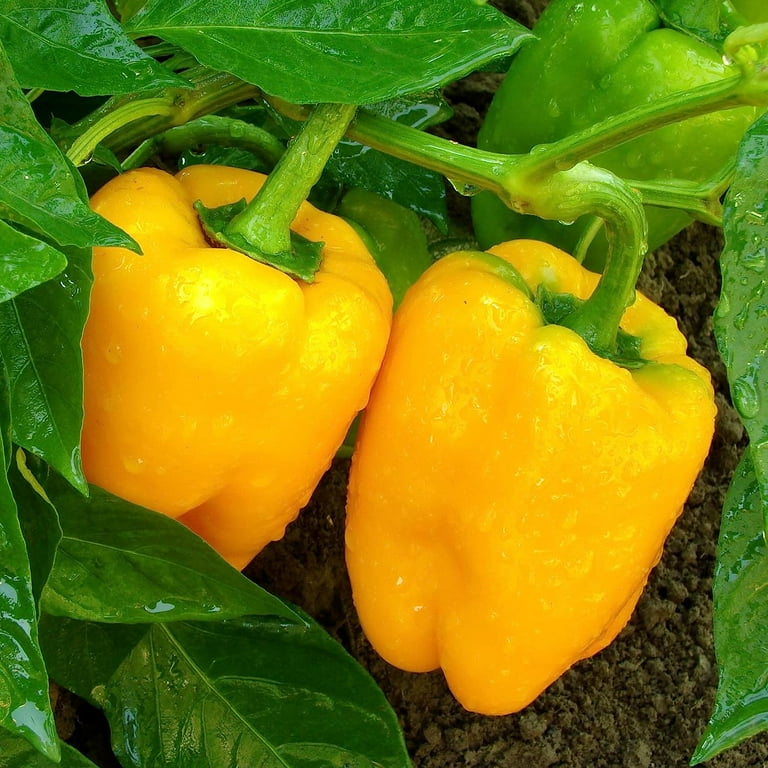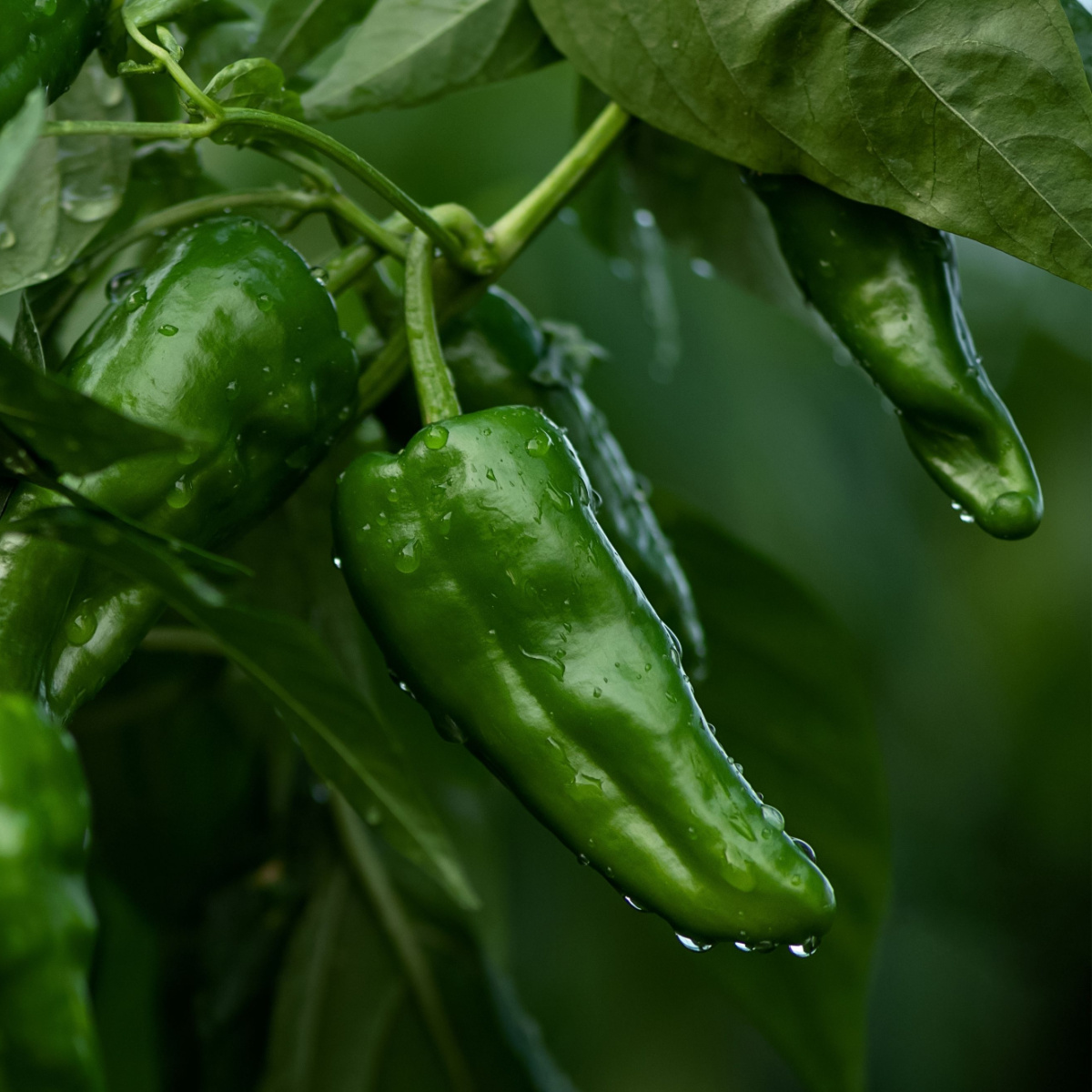Choosing the Best Fertilizers for Peppers: Professional Recommendations
Choosing the Best Fertilizers for Peppers: Professional Recommendations
Blog Article
Organic Vs. Synthetic Fertilizers: Which Is Best for Nurturing Healthy Pepper Plants?
In the realm of nurturing healthy and balanced pepper plants, the choice in between synthetic and organic plant foods stands as a crucial choice with far-ranging effects. While both options goal to provide important nutrients to support plant development, the subtleties of their effect on the soil, plant health and wellness, and the atmosphere spark a debate that echoes throughout the gardening community. Comprehending the distinctive advantages and possible mistakes of each plant food type is essential for pepper growers looking for to enhance their yields while preserving a sustainable and eco-conscious method.
Advantages of Organic Plant Foods
Organic fertilizers provide an environmentally-friendly and lasting approach to beneficial pepper plants, offering crucial nutrients without making use of synthetic chemicals. These natural plant foods are originated from organic resources such as compost, manure, bone meal, and algae, advertising dirt health and wellness and biodiversity. Unlike synthetic fertilizers, natural alternatives launch nutrients gradually, guaranteeing a constant and balanced supply for pepper plants to thrive.
One significant advantage of organic fertilizers is their capability to boost soil framework and water retention. By improving soil health and wellness, organic fertilizers promote beneficial microbial task, which aids in nutrient uptake by pepper plants. In addition, natural fertilizers decrease the risk of chemical run-off, securing water sources from air pollution and protecting the atmosphere.
Moreover, natural fertilizers add to long-term dirt fertility by promoting the growth of helpful dirt organisms. These organisms aid break down natural matter, releasing nutrients in a type that is easily available to pepper plants. best fertilizers for peppers. By cultivating a healthy and balanced soil ecological community, natural plant foods sustain lasting pepper farming techniques that profit both plants and the atmosphere
Disadvantages of Synthetic Fertilizers
Artificial plant foods, in comparison to their organic equivalents, pose numerous disadvantages when utilized to nurture pepper plants, affecting both plant wellness and environmental sustainability. One major downside of artificial fertilizers is their tendency to leach nutrients from the dirt rapidly. This quick leaching can result in nutrition discrepancies in the soil, causing plants to suffer from shortages or poisonings. In addition, artificial fertilizers can harm advantageous dirt organisms, such as earthworms and helpful bacteria, disrupting the dirt environment's balance.
Furthermore, the overuse of artificial fertilizers can contribute to water pollution. Excess plant foods not soaked up by plants can get rid of into water bodies, bring about eutrophication, where algae flowers diminish oxygen levels in the water, damaging aquatic life. In addition, artificial fertilizers are generally obtained from non-renewable resources, such as nonrenewable fuel sources, adding to carbon exhausts and environmental deterioration during their production.
Nutrient Absorption Comparison
When contrasting artificial and natural fertilizers in terms of nutrient absorption, organic plant foods have the advantage of offering a much more well balanced and slow-release resource of nutrients. Organic fertilizers consist of a range of macro and trace elements that are not only helpful for the plants but likewise advertise healthy soil microbial task, which assists in nutrient uptake.
In addition, organic plant foods improve dirt structure and water retention capacity, permitting pepper plants to access nutrients much more efficiently. This better dirt top quality helps with root growth, making it possible for far better nutrient absorption. Artificial fertilizers, although initially increasing plant development because of their high nutrient concentrations, might hinder long-lasting nutrient absorption by degrading soil wellness over time.
Ecological Influence Considerations

On the other hand, synthetic fertilizers, although commonly more quickly offered and focused to plants, can have harmful results on the environment if not applied appropriately (best fertilizers for peppers). Their manufacturing requires high energy inputs, leading to greenhouse gas emissions and adding to climate learn this here now change. Moreover, the drainage of excess synthetic fertilizers can contaminate water sources, bring about eutrophication and harming water ecological communities.
Best Plant Food Practices for Peppers
When feeding pepper plants, enhancing nutrient uptake and lessening ecological impact are crucial have a peek at this site factors to consider. To achieve this, it is important to follow finest plant food practices customized to the details needs of pepper plants. One important technique is to execute a dirt examination prior to using any plant foods. This examination can figure out the pH level of the dirt and recognize any nutrient deficiencies, guiding you in choosing the most appropriate fertilizer formulation.
One more crucial practice is to feed pepper plants at the correct time. Usually, peppers gain from receiving plant food at growing and after that once more when they begin to flower. Over-fertilizing can bring about vitamins and mineral imbalances and hurt the plants, so it is important to adhere to recommended application rates.
Furthermore, picking a well balanced plant food with an NPK proportion that matches pepper plants' needs is fundamental. Inevitably, integrating natural and artificial plant foods deliberately can aid support healthy pepper plants while reducing environmental influence.
Final Thought

Organic fertilizers offer a sustainable and environmentally-friendly strategy to beneficial pepper plants, offering crucial nutrients without the usage of synthetic chemicals. Unlike artificial fertilizers, natural choices launch nutrients gradually, making sure a stable and well balanced supply for pepper plants to flourish.
Synthetic fertilizers, in contrast to their natural equivalents, pose different disadvantages when made use of to nourish pepper plants, affecting both plant health and environmental sustainability. When contrasting artificial and natural plant foods in terms of nutrient absorption, organic fertilizers have webpage the benefit of giving a much more well balanced and slow-release resource of nutrients.In addition, natural plant foods improve soil framework and water retention capability, enabling pepper plants to gain access to nutrients more successfully.
Report this page